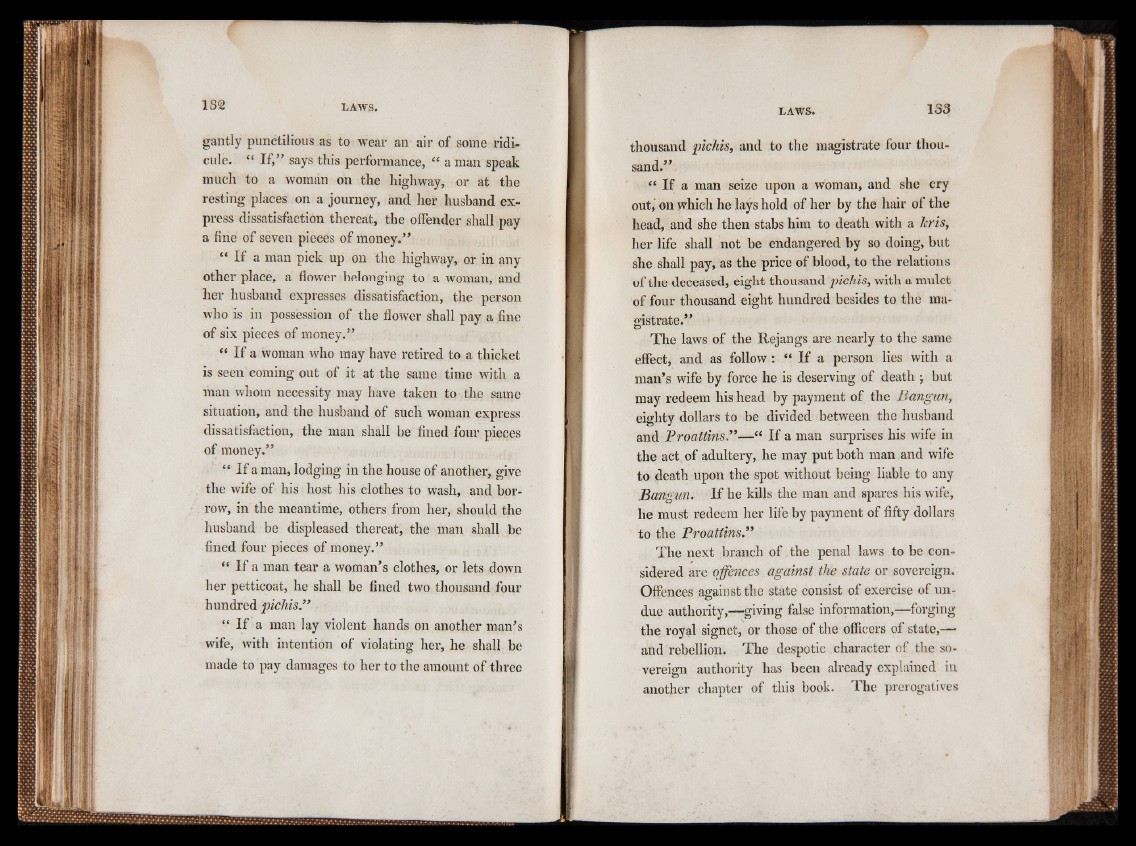
gantly punctilious as to wear an air of some ridicule.
“ If,” says this performance, “ a man speak
much to a woman on the highway, or at the
resting places on a journey, and her husband express
dissatisfaction thereat, the offender shall pay
a fine of seven pieces of money.”
“ If a man pick up on the highway, or in any
other place, a flower belonging to a woman, and
her husband expresses dissatisfaction, the person
who is in possession of the flower shall pay a fine
of six pieces of money.”
“ If a woman who may have retired to a thicket
is seen coming out of it at the same time with a
man whom necessity may have taken to the same
situation, and the husband of such woman express
dissatisfaction, the man shall be fined four pieces
of money.”
“ If a man, lodging in the house of another, give
the wife of his host his clothes to wash, and borrow,
in the meantime, others from her, should the
husband be displeased thereat, the man shall be
fined four pieces of money.”
“ If a man tear a woman’s clothes, or lets down
her petticoat, he shall be fined two thousand four
hundred pichis.”
“ If a man lay violent hands on another man’s
wife, with intention of violating her, he shall be
made to pay damages to her to the amount of three
thousand pichis, and to the magistrate four thousand.”
“ If a man seize upon a woman, and she cry
out, on which he lays hold of her by the hair of the
head, and she then stabs him to death with a hr is,
her life shall not be endangered by so doing, but
she shall pay, as the price of blood, to the relations
of the deceased, eight thousand pichis, with a mulct
of four thousand eight hundred besides to the magistrate.”
The laws of the Rejangs are nearly to the same
effect, and as follow : “ If a person lies with a
man’s wife by force he is deserving of death ■, but
may redeem his head by payment of the Bangun,
eighty dollars to be divided between the husband
and Proattins.”—“ If a man surprises his wife in
the act of adultery, he may put both man and wife
to death upon the spot without being liable to any
Bangun. If he kills the man and spares his wife,
he must redeem her life by payment of fifty dollars
to the Proattins.”
The next branch of the penal laws to be considered
are offences against the state or sovereign.
Offences against the state consist of exercise of undue
authority,—giving false information,—forging
the royal signet, or those of the officers of state,—
and rebellion. The despotic character of the sovereign
authority has been already explained in
another chapter of this book. The prerogatives